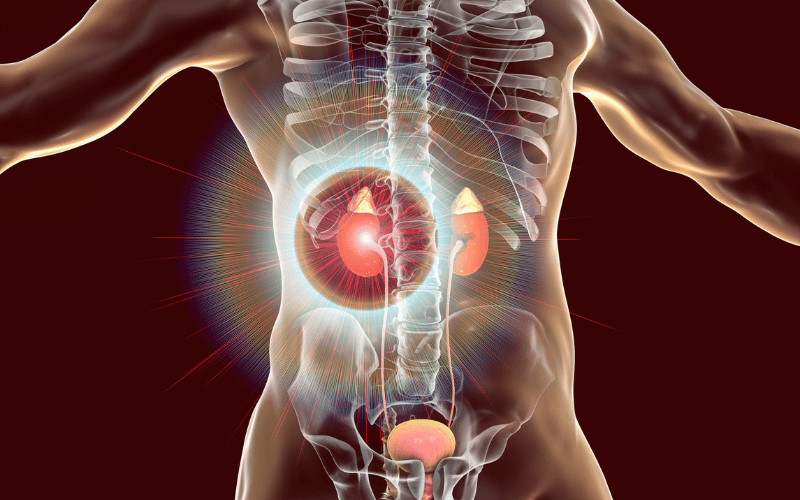Cause 9: Adrenal Gland Disorders
Deep within the intricate tapestry of the endocrine system lies a pair of small but mighty glands called the adrenal glands. These remarkable organs, perched atop the kidneys, are responsible for the production and secretion of several crucial hormones, including aldosterone. However, when certain adrenal gland disorders arise, the delicate balance of potassium can be thrown into disarray, leading to Hypokalemia.
One such disorder is Addison’s disease, also known as primary adrenal insufficiency. In this condition, the adrenal glands fail to produce adequate amounts of cortisol and aldosterone. Aldosterone, in particular, plays a critical role in maintaining potassium levels by regulating its excretion in the kidneys.
Without sufficient aldosterone, the kidneys are unable to retain enough sodium and excrete excess potassium, resulting in Hypokalemia. This hormonal imbalance can cause a host of symptoms, ranging from muscle weakness and fatigue to irregular heart rhythms.
Diagnosis of adrenal gland disorders involves a comprehensive evaluation of symptoms, hormone testing, and imaging studies to assess the structure and function of the adrenal glands. Treatment typically involves hormone replacement therapy to restore the deficient hormones, such as corticosteroids or mineralocorticoids.(*)
